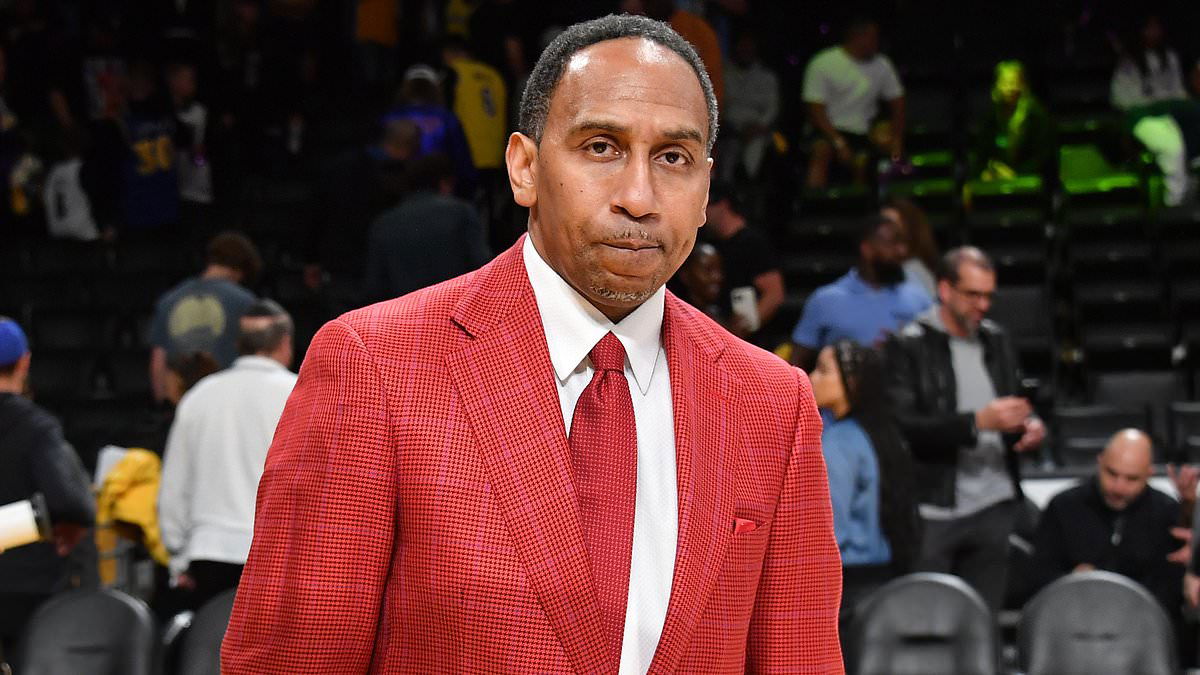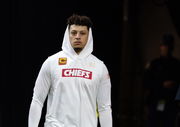

For the first time in over 100 years of its existence, the NCAA is ushering in a new era of college sports. In a landmark ruling, the NCAA and the Power Five conferences agreed to settle three antitrust cases, including the payment of more than $2.7 billion in damages to student-athletes dating back to 2016. With schools now allowed to pay athletes directly – and the roll-out expected to start in Fall 2025 – that’s 10 years of retroactive compensation. According to Stephen A. Smith, this will make all “the insidious things” the NCAA has been doing to exploit student-athletes transparent.
Watch What’s Trending Now!
It’s a groundbreaking development. There’s no denying that. With each school up to $20 million, all Division I athletes from 2016 will be eligible for a share of this sum. In return, though, they can’t sue the NCAA for any other potential antitrust cases. With the college sports governing body finally taking steps to make up for exploiting its athletes, Stephen A. Smith acknowledged the ruling, even saying that “this is long overdue.”
Known for his unfiltered remarks, Smith slammed the NCAA for pocketing student-athletes with their restrictive measures. After recounting the pointers in the $2.7 billion settlement on the Stephen A. Smith Show, he said, “The NCAA and these respective institutions under the umbrella have been taking advantage of student-athletes for ages. You were taking advantage of the desolate and the disenfranchised. And in flagrant fashion.” Before NIL valuation was a thing, before the transfer portal was set up, athletes had close to zero representation. It was them against the NCAA, as Smith pointed at just that.
ADVERTISEMENT
“You had an institution – you had lawyers, you had administrators, you had educators. You had everybody on one side going up against a bunch of kids. They didn’t stand a chance,” he exclaimed. “If you’re the NCAA, you should be ashamed of yourself. You’ve been exploiting these kids for years.” Per NCAA President Charlie Baker, the organization is a “uniquely American institution” and provides “unmatched opportunity for millions of students.” While that’s true in terms of their professional sports careers, for all these years, it’s come at the cost of them not knowing what it’s like to be paid your money’s worth.
Explaining exactly why this settlement is a landmark ruling, Smith continued, “This case is important because you (NCAA) have to retroactively go about the business of compensating athletes from the past you took advantage of. That’s gonna give us a look into exactly the insidious things that you were doing to get your way at the expense of kids and their families, pocketing all of this money.” It’s clear that the 56-year-old ESPN host favors the ruling. And unsurprisingly, this isn’t the first time he’s raised his voice against NCAA policies.
ADVERTISEMENT
Former college women’s basketball standout Caitlin Clark broke numerous records, including selling out the Indiana Fever’s No. 22 jersey within 10 days of being declared a Fever in the 2024 WNBA Draft. Taking this opportunity to suggest that many athletes and coaches are leaving the NCAA because of NIL complications, Smith said on Earn Your Leisure, “The NCAA brought it on themselves because of how they were [with their policies]. So, if these athletes find a way now to get paid more, power to them.”
NEWS: The NCAA and power conferences have agreed to a settlement agreement that will allow schools to directly pay athletes for the first time in college sports history.
Each school will begin revenue-sharing up to ~$20M per year with players—a framework that may begin by 2025.
— Front Office Sports (@FOS) May 24, 2024
ADVERTISEMENT
Smith emphasized that most elite players are from humble backgrounds and were once not allowed to fly or travel to visit their families over the holidays. However, with the introduction of NIL, some players can benefit from their name, image, and likeness, including Caitlin Clark, who has an NIL valuation of $3.1M. This new settlement will act as a source of enforcement for the players and will receive what has been denied all along. But will smaller schools benefit from this ruling, too?
“There is real concern” for athletes from smaller schools and conferences
In a conversation with ABC News, USA Today reporter Christine Brennan was asked how this $2.7 billion settlement will ensure equal compensation for women and athletes from conferences other than the Power Five. She responded, “One can imagine there will be a lot of lawsuits if there is no equity in paying women as well as men. It’s pretty clear that the nation has fallen in love with Title IX in the wake of the women’s basketball success, and I think we will see that moving forward.”
ADVERTISEMENT
Title IX is the federal law that prohibits sex discrimination in any educational establishment that receives federal funds. However, the case isn’t as simple for smaller schools. According to Brennan, “As far as the smaller schools and conferences, there is real concern. Some of them don’t have football, and yet they’re going to be paying in to pay this big settlement.” Football and men’s basketball are two of the most revenue-generating sports for colleges, and if a school doesn’t have either, they’ll still be expected to contribute to the $2.7 billion sum. That’s not the only case.
“Some schools may say, ‘You know what? We just don’t have money to pay athletes,’ and they may pull back or cut sports.” This ruling only allows schools to pay athletes. It doesn’t require them to. That said, what’s your take on this landmark ruling? Let us know your thoughts in the comments.
Top Stories
NFL Make Final Punishment Decision on Controversial Patrick Mahomes Incident

Tom Brady Hints at Nefarious Actions From Bears After Packers Lose Sideline Heaters

Prayers Pour In From Terrell Owens as 275lbs Former Cowboys Player Announces Major Health News

Matt LaFleur Blames Locker Room After Issuing Painful Statement on Packers’ Loss

Bears DE Awaits Punishment for Controversial Jordan Love Incident After Packers Shared Injury Update

ADVERTISEMENT
ADVERTISEMENT
ADVERTISEMENT

